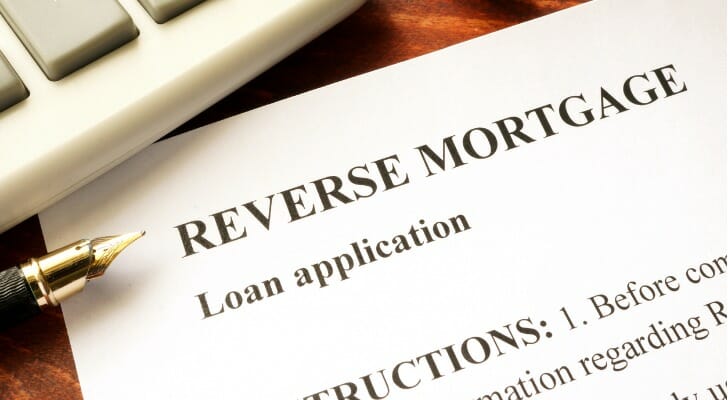Taking out a reverse mortgage can generate another source of income in retirement. Unfortunately for many, it just became a lot more difficult to qualify. In April 2015, the Federal Housing Administration (FHA) enforced new guidelines regarding who can get approved for a loan. If you’re planning to apply, here’s what you need to know about the changes.
Consider working with a financial advisor as you explore ways to shore up your retirement finances.
Financial Assessments Are Mandatory
Under the new rules, seniors who apply for a reverse mortgage will be subject to more intense financial scrutiny. Specifically, lenders will be looking at applicants’ income, expenses, assets and credit, which is similar to what consumers go through when applying for a traditional mortgage loan.
When you apply for a reverse mortgage you’ll be expected to provide appropriate documentation, including your bank statements, tax returns and Social Security or pension statements. You’ll also have to explain any negative marks on your credit report, although a poor credit score won’t necessarily keep you from getting a loan.
How Assessments Are Used
Assessments gauge your overall financial health and whether you can afford the payments you have in connection with your home. If you can’t check off all the boxes on your lender’s list, you may be asked to put aside some money to gain approval for a reverse mortgage. This is a specific amount that the borrower agrees to use to cover property taxes, homeowners insurance and other expenses that may come up. The funds are taken directly out of the amount of home equity used for the loan.
Whether or not you’ll need to set anything aside is based on how much extra money you have each month after you’ve paid your bills. If a large set aside is required, it can eat up all your equity and wipe out most of the benefits you’d get from taking out a reverse mortgage in the first place.
Why the Changes Are Necessary

With a reverse mortgage, the money you borrow doesn’t have to be repaid unless you pass away or sell your home. It doesn’t work like a regular mortgage in the sense that you’re not obligated to make any payments toward the loan. So why are tougher rules being imposed on reverse mortgage borrowers?
During the housing collapse and the subsequent recession, many reverse mortgage holders defaulted on their loans because they failed to pay their property taxes and insurance. As property values dwindled the FHA, which insures reverse mortgages obtained through approved lenders, took a huge financial hit as the number of foreclosures mounted. The new changes are designed to weed out reverse mortgage applicants who may pose a bigger financial risk.
Pros and Cons of a Reverse Mortgage
Should You Get a Reverse Mortgage?
At its core, a reverse mortgage allows for an infusion of cash into your financial life during a sometimes tumultuous time: retirement. Therefore, if you’re in need of some extra money, this type of loan is well worth looking into. The money paid out through a reverse mortgage is often tax-free. That makes it a relatively simple way to ease your monthly budget without taking on too many extra costs.
You may go through the reverse mortgage application process and find that the associated fees are quite high. If this describes your situation, you should likely steer clear of a reverse mortgage. There are other options for gaining money in retirement, so don’t feel overly attached to this option.
On other occasions, you may find that you simply don’t have access to reverse mortgages. This will happen if you own either very little or all of the equity in your home.
Bottom Line

There are a few things you can do before applying for a reverse mortgage to reduce the chances of needing a set aside or being denied altogether. If you’re carrying a significant amount of debt, for example, it’s important to try to lower it and make sure your bills are paid on-time so you can improve your credit history. Minimizing your expenses is also a good idea since it frees up more disposable income. The more excess you can trim, the better your odds of being able to qualify for a reverse mortgage under the new guidelines.
Tips on Retirement
- A financial advisor can offer valuable insight and guidance on retirement. If you don’t have a financial advisor yet, finding one doesn’t have to be hard. SmartAsset’s free tool matches you with up to three vetted financial advisors who serve your area, and you can interview your advisor matches at no cost to decide which one is right for you. If you’re ready to find an advisor who can help you achieve your financial goals, get started now.
- Social Security benefits aren’t enough to replace having your own retirement savings. However, they can certainly help with your living expenses in retirement. Try our Social Security calculator to see how much of a benefit you can expect.
Photo credit: ©iStock.com/designer491, ©iStock.com/TACrafts, ©iStock.com/Indysystem
